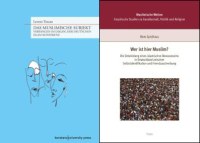Verstrickungen im diskursiven Netz von Zugehörigkeit(en) – Die Entdeckung muslimischer Subjektivitäten in Deutschland zwischen Fremdbestimmung und Selbstermächtigung
DOI:
https://doi.org/10.22029/ko.2013.792Abstract
Das muslimische Subjekt ist begehrt – als Gegenstand zahlreicher Mediendarstellungen und (populär-)wissenschaftlicher Publikationen ebenso wie als Akteur im Feld deutscher Sicherheits- und Integrationspolitik. Doch wo kommt dieses Subjekt so plötzlich her, was macht es aus und wo gehört es eigentlich hin? Mit einem kritischen, an Michel Foucaults Gouvernementalitätskonzept respektive Judith Butlers Subjektivationstheorie geschärften Blick gehen der Soziologe und Politikwissenschaftler Levent Tezcan und die Islamwissenschaftlerin Riem Spielhaus diesen Fragen jeweils nach. Während Tezcan in seiner 2012 erschienenen essayistischen Abhandlung Das muslimische Subjekt. Verfangen im Dialog der Deutschen Islam Konferenz die gegenwärtige deutsche Islampolitik in ihrer Form eines gouvernementalen 'Kulturdialogs' als strategische Bevölkerungspolitik herausstellt, fokussiert Spielhaus in ihrer 2011 veröffentlichten empirischen Studie Wer ist hier Muslim? Die Entwicklung eines islamischen Bewusstseins in Deutschland zwischen Selbstidentifikation und Fremdzuschreibung die Ambivalenzen, die in dem Prozess muslimischer Subjektivierung und Vergemeinschaftung hervortreten.
Literaturhinweise

Downloads
Veröffentlicht
Ausgabe
Rubrik
Lizenz
Alle Beiträge (nicht die Buchcover) in KULT_online seit der 50. Ausgabe erscheinen unter der Lizenz Creative Commons Namensnennung 4.0. Die veröffentlichten Beiträge dürfen Sie unter den Bedingungen der Lizenz frei nutzen, insbesondere auch für kommerzielle Zwecke und durch Bearbeitung der Beiträge (allgemeinverständliche Fassung). Die Autor_innen von KULT_online haben der Zeitschrift die Veröffentlichung erlaubt und ihre Texte unter einer CC-BY-Lizenz veröffentlicht. Es findet keine exklusive Übertragung von Verwertungsrechten („copyright transfer“) an die Zeitschrift statt. Für die Buchcover gelten die urheberrechtlichen Bestimmungen des Verlages, bitte kontaktieren Sie das Verlagshaus für jede rechtmäßige Weiternutzung. Alle Beiträge der Ausgaben 1-49 sind online frei zugänglich und unterliegen den Nutzungsbeschränkungen gemäß des deutschen Urheberrechts



